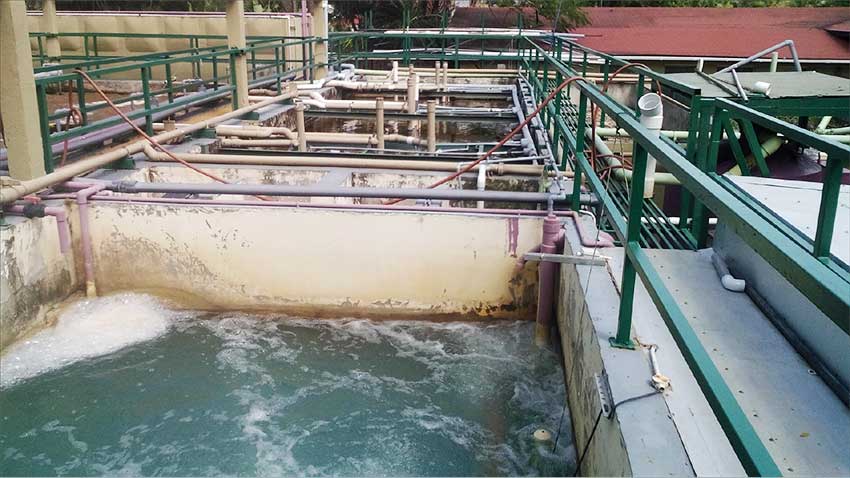SANDALS Resorts International continues to play a leading role in conservation and environmental matters in the Caribbean, so much so that the resort chain was recently recognized by the Caribbean Public Health Agency (CARPHA) for the strides it has made in conservation and repurposing of waste water.
As part of its efforts to observe World Water Day in March this year, CARPHA produced a documentary focusing on companies and organisations that play a critical role in helping to conserve the planet’s limited fresh water supply and singled out Sandals Resorts for its investment in plant and equipment to recycle waste water for re-use, ensuring that it does not find its way back into natural water systems without first being treated.

While water supports all life on earth and is essential for the vital eco-systems on which we depend for our very survival, CARPHA warned that fresh water is a limited resource which accounts for only a small fraction of the total volume of water which covers the planet.
According to CARPHA, “We use water daily in our homes, for agriculture and for industrial processing. This daily use produces waste water which is largely untreated before being deposited into our environment, with negative consequences on human health and the environment.”
However, CARPHA said that with the right approach, such water can be reused with many benefits and one organisation leading the way with this is Sandals Resorts International. One such facility can be found at the Sandals Halcyon Beach Resort in Saint Lucia.
Environmental Health and Safety Manager at Sandals Halcyon Beach Resort, Bianca Young, pointed out that all waste water is treated on the property before being repurposed for irrigating the grounds of the hotel.
“The (waste) water that comes through our pipes will go from a lift station and is pumped into the plant,” she said. “It goes through a few different stages, where the sewerage is then put into a clarifier where sludge is separated from what’s called supernatant or clear water, and that water is then stored and chlorinated, and that is the water that is useful for other purposes.”
The repurposed water is used entirely for irrigation at Sandals, helping to keep fresh and bright the resort’s amazing array of trees, flowers and other shrubs, for which the company is also world-famous. It also means that valuable potable water is not used in this manner.
Said Young: “Having your own treatment plant, you avoid having to pump your sewerage to an offsite location, which may be some distance away, and that does require a lot of energy and large pumps as well to get that sewerage to the appropriate place.”
Apart from the obvious cost savings, the programme minimizes the environmental impact of Sandals’ operations and contributes to the preservation of the natural environment and human health.
Sandals Resorts employ a full programme which includes the linen re-use programme. This is critical for water conservation and has the added benefits of conserving electricity and detergent. Guests are encouraged to re-use their linen throughout their stay to reduce their footprint on island.
At other properties, the resort chain has explored the use of desalination facilities, which convert salt water to potable water, and reduces the burden on an island’s limited water resources.
Preventative maintenance is ongoing at all resorts to increase efficiencies and reduce overall cost for water consumption. The conservation policy speaks to awareness, continuous training and ongoing monitoring to increase best practice.
CARPHA said the re-use of waste water is a key climate change adaptation strategy that helps make the country more climate change resilient. Having highly-treated waste water available for use, particularly during times of drought and water scarcity, is valuable for the wider agricultural community for use in irrigation. It is also a resource that can be used by the fire service and construction companies.
CARPHA is urging people to practice water conservation in their homes every day and said that collection and storage of rain water for use is another strategy that can be employed.














